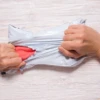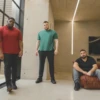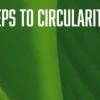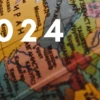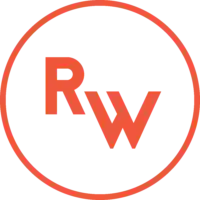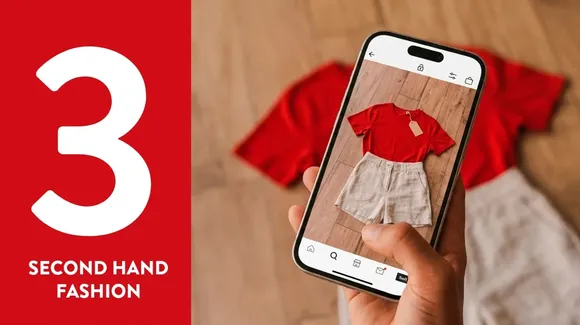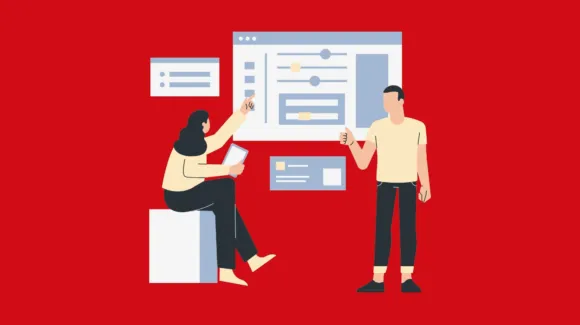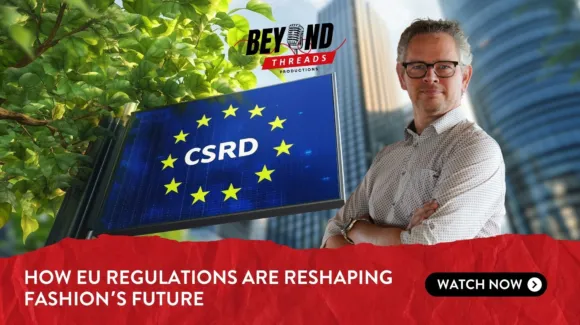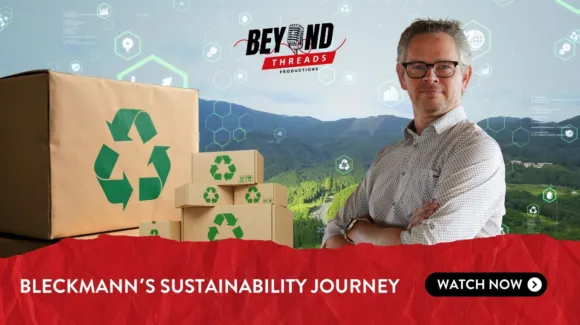Join host Mohamed Akabbal and sustainability expert Nicole Bassett as they dive deep into the world of sustainable fashion on the premiere episode of the Beyond Threads podcast by Bleckmann. From Nicole's journey in the industry to the evolution of sustainability practices and the shift towards circular business models, we're unpacking it all. Tune in now for insights on prioritizing sustainability for a greener future!
Read along:
Mohamed: Thank you for listening. Our Welcome to the Beyond Threads podcast by Bleckmann. My name is Mohamed Akabbal. I'll be your host today. Today I have with me Nicole Bassett.
Nicole: Hello!
Mohamed: Thank you for joining me for the first broadcast. I'm very excited to have you here. Of course, it's going to be the first one, so I hope I'll be a good host. This episode will be about sustainable fashion, hence why I've invited Nicole here with us. Would you be able to introduce yourself, Nicole? Who are you? What do you do?
Nicole: Excellent. Well, I'm very excited to be here and to be able to talk with you today. Yes, I have worked in the apparel sector in sustainability for a long time, I actually started as an intern at Patagonia about 20 years ago and worked on supply chain sustainability in the human rights space, making sure that the people in the factories who make our clothes, their rights were being upheld. Then, I expanded my role into environmental sustainability as well. I have a master's in environmental studies and business, so it was great to be able to use it in the real world. And I work for a number of different brands working on their supply chains around sustainability, and we'll get a little bit more into it talking about the workshop. Having been done sustainability for a long time, I was also very inspired and interested in circularity and how to start implementing that into the apparel sector. And so, I've been doing that for about the last nine years.
Mohamed: Wow, 9 years already with the Renewal Workshop?
Nicole: It's crazy to think that.
Mohamed: How did it start? I'm curious because nine years, how has the nine years been? What's your experience in it?In starting it? And, the progress and joining Bleckman and everything?
Nicole: Great question. I probably should also say I'm based outside of Portland, Oregon, in the United States, and that has nothing to do with my answer.
Mohamed: But it's well to know because I'm here in Eindhoven, in the Netherlands and it is the other side of world of Portland, Oregon.
Nicole: And we probably have the same weather, probably raining and cold.
Mohamed: It is, even when the sun is shining it's cold. Also, the time difference, it is probably morning for you right now.
Nicole: Yeah, it is. So, the Renewal Workshop, I was working on sustainability probably about ten years ago. One of the things I had an epiphany moment about was that even though we were making all of these clothes more sustainably, we were reducing the negative impact by choosing, organic cotton or reducing chemicals inside of the dyeing process, or making sure we were in fairtrade factories, all these great things that we were changing. I realized at the end of the day that the only way that apparel brands can make money is by making more products each year. And that really struck me as like, there's a bigger problem at hand here. And that's what I would call the business model or the financial model of how apparel works. And, that's when I got really inspired by Circularity and dug into that a lot more and realized that a brand could change the way it operated if it would decouple its revenue from its production. So, if it could generate revenue off of the existing products that it made or offering services or other things, then it wouldn't have to be relying on making more stuff every year. And so, I thought, you know what, I think the missing link here is that brands don't have a supply chain sort of after their product is made. What happens to bringing it back and getting it resold? All of that needed technology and infrastructure to do it. And that's really what inspired the start of The Renewal Workshop, which is a crazy process. I worked inside of brands most of my career and had started new initiatives inside of brands, but I had never started my own company and that was a very eye opening of like, you have not only your innovation you're trying to figure out, but you're also trying to set up a company and taxes and accounting and payroll.
Mohamed: I can only imagine. So, what makes me curious, is that you have worked for brands before. You know that side of the business, like production wise, logistics wise, how was that transition? Because of course you have had experiences within the fashion industry transitioning to the, like the value added,
services I would say is that an appropriate name to say, to give it? How was that transition from going to the fashion brands to like the sustainable factor within a fashion brand because it's a separate company and at the same time you're working with those fashion brands to upcycle, recycle or to fix anything that is unsold. What’s the transition?
Nicole:
It was really good in the sense that I knew who the customer was really well because I was that person.
Like I was the one who actually sorted it and sat down. And said, if I could create a company that solved all of my problems, what are the things that I would need from it? I could lay that all ou and that became r the core of The Renewal Workshop. So, I knew, okay, how am I going to get budget for this?
How or where is the product going to come from? What problem am I solving? How would I sell this up to my CEO? All of that was really like what I had had been doing before. And so, I tried to create a lot of that in the solution or even like, I know they're going to want that in their environmental impact reporting.
They're going to want these data sets. So, I have to make sure that those are ready and we have to make sure our factory is compliant to Labour laws, all of those sorts of things that came into play. We very much
built the company to be everything to a brand. And what that meant was like right before for a lot of brands when they would get either warranty products back or damage returns, they had a trade in program. If it wasn't in good shape, it was getting landfilled really or destroyed and then if it had some kind of value left in it, they might do a sample sale or it might go to a charity. There still is a lot of concerns about ultimately us and in developed countries, the global north putting product into Africa and South America and dumping basically our garbage in there. And so, the idea was, let's solve for that and build the operations to be able to help the brands divert it instead from this direction. We want it to go into a place where it could get sorted and elevated and make sure that we're reselling the product. The other big thing that was really challenging at that time is that a lot of brands were not in the mindset that they would ever resell their own products. They were in the business of making and selling “new”, and what's been so cool over the last nine years is how much that's changed. I think almost every brand is not shy of that idea. They may not have invested in it yet, but they definitely are aware that the consumer is interested in it and that this is a potential viable business model for them to go into.
Mohamed: That's awesome. What made me think about your answer is since we are in an era of high fashion and so much production is being done, it's just like every couple of months there is a new season being released or I don't know. But, there's always a new line being released.
And I think it would be good for those brands because I can name a couple of brands that don't even consider or they're reluctant of offering their clothes for a cheaper price or to recycle them or whatever. They just burn it or throw it away and then the new line is coming out. So, what The Renewal Workshop is doing, I think it's a great thing and sustainability like what you said is getting more important and people are getting more aware of where their clothes are coming from and where they’re going.
So yeah, I really like that business model and I hope it will grow. What would be, not necessarily the end goal, but what's the mission of The Renewal Workshop? You mentioned Africa and less waste would happen?
Nicole: Our mission then and actually what's really cool about being acquired by Bleckmann is the idea has been able to scale. We could create a circular economy for the apparel industry. What that means is that all products created, there's no waste or pollution at any point in the supply chain of the product.
We use products longer and then we make sure that we do this in a just way for both the environment and for the people along our path. And it sounds very “Utopian", but it's also really aligning with the fact that we live on a planet that everything spreads, nothing disappears. And so, this idea that we can just keep doing a bad practice and not expect some kind of effect is a little bit naive.
So, the idea would be is that all apparel is designed with the principles of circularity in mind, that the business, all the brands have designed their businesses, so that you're not only making new product out of regenerative materials, either recycled materials or regenerative agriculture, but you have planned your business model, so that you're selling your products multiple times, you're providing services to keep those products in us for longer you're doing it in a sustainable way and that there's a healthy financial business but not at the detriment to people or our planet.
Mohamed: That informs me a lot, I’m learning. My first thought about The Renewal Workshop was that it's only when the products are being fixed like damaged goods etc., but it's also thinking ahead of the supply chain, all materials that are being used. So, there's also a focus on that. And, maybe good for the listeners to know that's also the case because it's important like you mentioned that we are not living on a planet with infinite resources and at one point everything will be depleted and it's just going to be recycling all the way. And, it's better I think to be ahead of that issue instead of figuring out like, hey, everything is depleted, what should we do now and that I think that will be too late.
Nicole: It will be too late. And so just to be clear, part of this is what The Renewal Workshop inside of Beckman does, but also how we help inform the brands. So definitely, Bleckmann is not the one telling the brands what materials to get or how to run their businesses. but what we are saying is we can do all the operations for you and we also can help inform you how to do your circular business more efficiently.
So, we often will talk to our brand partners and say, hey, if you did these things to your product, for example, because we have so much experience with repairs and we can go back to brand and say, hey, the type of zipper you're using fails in this way consistently, or you don't give enough seam allowance that doesn’t allows us to fix something or here's just feedback on your trims or any kind of construction that we can give to the brands. And then they can design their products either more durable or easier to repair and that will help make the resale and the repair part of the Circular Business Model a lot more efficient for them.
Mohamed: That's really a good thing to know for businesses who haven't even thought about a sustainable factor within their company. So, if you want more information, Nicole Bassett is always ready to answer your questions and I'll do a promotion later on at the end on where people can find you. So to my knowledge the approach of The Renewal Workshop is clear and what about Bleckmann? We are partners with you now and that is clear. But, what is Bleckmann’s involvement in The Renewal Workshop?
Nicole: In March of 2022, almost exactly two years ago, Bleckmann acquired The Renewal Workshop and integrated The Renewal Workshop into Bleckmann Services. The Renewal Workshop isn't a standalone company any longer, we have integrated it and to basically what we call Bleckmann Circular Solutions. What we now can do inside of Bleckmann is actually scale what we were doing within The Renewal Workshop at a much larger level because of the size and breadth of Bleckmann itself.
Now within Bleckmann, not only does Bleckmann offer logistics services like shipping from factory to a warehouse to customers, handling return services, but now that The Renewal Workshop is part of it, now it is like what are all the things the brand needs to think about after it's gone out to the customer. Now, we can offer a service like what we call Trade In, which uses our returns, technology and offer and logistics and basically brands can go to their customers and say, hey, how about we incentivize you to send back your products when you're done with them so that the customer doesn't throw it out and we can keep that product in use. We have four sites now that are doing renewal capabilities and so what that means is that products come in and we sort them and determine if it's sellable again then we clean and we repair those items and then we get them back into stock. We also are offering a new service on returns. So, we call it Rescue. And so that means that at the moment of return, a brand doesn't have to damage out those products, We can actually clean and repair them at that moment and then they can go back into stock, which allows products to be at their highest use. It actually avoids a lot of waste at the point of when waste is generated, that's really important. We also then help brands with resale. We basically integrate with however the brand wants to resell their product, be it in their stores, or if they want to use a resale website or they want to use a resale marketplace. We have a lot of flexibility on how a brand wants to do their resale. And then if the brands send their products to a recycler, we can help with logistics in that way. So, the idea now is to really leverage all the strength and logistics and warehousing with all the strength of circularity within The Renewal Workshop and be able to now offer all these services so that brands can focus on their own business and leave operations to someone else.
Mohamed: Yeah, that’s what Bleckmann does, they take every possible problem in your mind away when it comes to logistics operations. So yeah, that is a good transition. Since you've been in the industry for 20 years now, what are the biggest differences you've seen within The Renewal Workshop like sustainability wise, but also logistics?
Nicole: There's a lot. Back in 2004, we were really starting to move from a realization that companies are the ones who are making these environmental impacts and so, the awareness was very new and you know, outside of like the big companies, like maybe an oil gas or an airplane or something like that, but like an apparel company has an impact. And so, at that time it really was like, please print on both sides of the paper and don't forget to recycle in the office like things like that were kind of what we talked about. And then it became quite clear that the impact really is in what you make and how you make it, so that's evolved a lot. The other thing that's interesting about logistics is when brands started doing lifecycle assessments on where the impact of their products were, there were so many assumptions that, well, the shipping of your product from A to B, and most brands put their products on a boat and ship it if they're manufacturing in China and then selling in, say, Amsterdam. But the fact that it's on a boat actually reduces the sort of negative environmental impact. Putting on a plane. Not good. No, I don't do that. But the evolution of like that, logistics can be a really key solution inside of circularity has it sort of like the not sexy but very critical piece to all of this because sustainability has been very focused on the product.
And so where is the product made? Who are the people making it? Can you do that better? And now I would say in 2014, 15 is when waste really became very clear. Like, wow, we're just making product to throw it away and is there not a better way to do this? The other evolution, I would say obviously is climate and that carbon emissions were not as commonly discussed or tracked or as they are as they are now and part of that is the growing global concern with climate change, the U.N., and all the initiatives around the protocols and then also in the United States, we now have legal disclosures around carbon and carbon footprints. And so that piece of it has been very important and I think what people are starting to realize now is there's more places to find solutions, and that is the product itself, the circular business model is a huge solution. Who you choose and how you move products through logistics is really important like even where the energy of the building is coming from. I know we have a new site in Oslo that's like a circular business, like a circular building with no emissions. And that's the kind of thinking that brands need to start to say, who am I doing business with? And making sure that those suppliers, logistics and everyone else is really thinking about energy and green energy.
Mohamed: So, the companies that are not doing this already, like what are the things they should be looking for? Because like Bleckmann is a pretty big company so far, what should be taken into account when considering a new logistic partner or trying to improve as a brand themselves?
Nicole: So I'm biased because I feel like sustainability is probably one of the most important pieces to the operations of your business and your products. A lot of companies start because there's a designer who feels there's a gap in the market and wants to create a product that's unique. This is usually very design centric at the beginning. Then, fortunately and unfortunately, you get wrapped up very quickly in like, how do I make this product and what materials do I choose and how do I want my business model to get set up? Am I doing direct - consumer? So, there's like hundreds and hundreds of questions to get off the ground and I watch a lot of startup companies and the first thing they say is like, well, I can't do that because it's too expensive. And, it's usually, it's not that that's not true, but it's also of like, well, what do you want to stand for? And I see a lot of brands early on start to water down their own brand because they're like, well, I want to stand for 100% organic, but I can't afford it, so I'm not going to, but I'll get it later. But then, you don't differentiate. And so really finding your values and being really clear about who you are and what you want to do and if you want to bring an innovative idea to the market - making sure that you have partners that can do that for you. And so, I feel strongly that brands should think through what does it mean to build a circular business model because circular business models actually generate more revenue if they're designed to be circular. So right now, a lot of companies, I would say are stuck in a linear model trying to augment circularity into it. Whereas, if you really start the company and think through, okay, I'm going to sell these three or four times, I'm going to provide repair services, I'm going to need a partner to make product that is designed for this. I'm going to need a logistics partner that can actually handle all of this. I'm going to need the right technology to be able to do that. Those decisions early will create the wind down the road of profitability because we've designed the efficiency from the beginning.
Mohamed: Yeah, that's a really good point because if as a brand you think, sustainability is a high priority of mine, but the financials, I'm not economically ready for that. So, in the long term it will generate more money because, and correct me if I'm wrong, of course - you're producing either the same amounts or more or less, but the money stays in the company because you're not throwing away anything or not wasting anything. So, I think that's a really good point because as a starting brand and I've considered starting a fashion brand myself and while I was in university or in college, I'm not sure what it's called in the states like CSR. So corporate, sustainable, responsibility was talked about a lot and I will never forget it. I'm not saying I'm traumatized,it's something that always stayed with me and seeing fashion brands that take sustainability seriously, I think in the long term, they will succeed more. And I'm not saying this as like a formula to success, of course, it's a planet we live on and we need to keep it alive for as long as possible. And it's just not about making a quick buck. so, that's, that's really important. And I want my kids and their kids to live as long and as clean as possible because you mentioned the emissions.
I don't want to get too political here, but, global warming might or is a real thing so that's really important. And thank you for elaborating on that. As I said, I'm learning more by the second as I'm talking to you and I hope the listeners will also have this light bulb above their head saying, okay, it's true. So yeah, that's really good. Moving on to the, to the next questions, perfect transition, of course. We've talked about the best of sustainability and logistics, what are your predictions on where it is going or what do you hope will be achieved in the future?
Nicole: I think there's a lot of opportunity for really interesting innovation in circular. So, I kind of feel like, especially with the tools that are available today, it's not hard to start a brand because like you can out of a box build a website in a day like that used to take a year. Yeah, and then there's a lot of small-scale manufacturing and people can build stuff. So, there's like starting a brand, but building a brand is really tricky. It's very hard. We're very fragmented in marketing now and how people see things and so that's very tricky. But I think there's a huge opportunity right now where apparel brands and fashion brands can start to think about what the customer’s future needs, what is that experience going to look like?
If people feel like, I don't want to own a lot of products, and I'm a business, I'm a CEO and my brand is based on the fact that I need to sell more products, what is that future customer want? The other thing too, is like for brands who sell only new things, there's your alienating millions of customers who are only buying used now, but they want to buy used from you and they want to have a good experience.
And so, what does that experience feel like and what does it look like? And a lot of companies right now are kind of looking around and saying, well, what's available today? And I really inspire companies to think about what could be possible. What would that ultimate experience look like? And I think we're going to see some really interesting stuff. There's been a couple of new brands that have come out where they built the whole business model on circularity and really thought through, okay, I want my products to be what is my take back experience? What happens at the end of my products? Like can I compost my product? And then I'm also selling dirt and that's another product I sell out of my company. Like it could just be anything. And I think that's what's really exciting. I don't I personally don't find it exciting. It's like, it's a news ski jacket and it's blue instead of navy blue. It's like, okay, what more like customers really do want to have innovation and people want to be part of a solution. And I think giving people the tools so that if they have to buy something, that that's a solution, not just about getting a new jacket.
Mohamed: Fair point. And to add to that, I'm chronically online. and I'm not saying it's a disease, but my screen time is up and I've been on social media also as a marketer, I have to be on social media and I've been following the trends and everything. And over the years, I've noticed that thrifting is becoming a trend and I don't want it to be a trend because trends usually end, and I want it to become like a lifestyle.
and even now, people are just following trends to push for more revenue. But in my opinion, instead of following the trends of the market, try to become a market leader and make the change so that other people or other brands will follow the steps you're taking because I think that's a better solution anyways.
So yeah, that's really cool to hear from you.
Nicole: My pleasure. Thank you for inviting me and having this conversation and talking about all of this. It's something I'm very passionate about - my love. So, I wanted to end by sharing a quote that I really love. I got it out of the book by Alec Leach, who was a fashion writer and now sustainability consultant, and the book is called The World Is On Fire, But We're Still Buying Shoes and he is quoting others in the climate circles and says “We don't need a few people to be perfect, we need millions of people to be better.” And, I think it's really important to keep in mind as we're doing this work, because often it's very polarizing and you have to be all perfect and I think making sure that we're at least doing better than we did yesterday is the kind of work that I know inspires us within The Renewal Workshop team and Bleckmann and hopefully inspires everyone.
Mohamed: That's a great quote. I really like it. It makes me think of that one thing I heard like,
“Even if you make a change, even if it's like 1% change per day in a year, it's 365% change.
that has been done.” So, thank you so much for that quote, for your information, and your time, of course.
Where can people find you? Because you are online, you have done a few interviews and podcasts before. What's your LinkedIn or socials? Tell me.
Nicole: Well, I am the opposite of you. I actually got off the internet during COVID so I can be found on LinkedIn, but I no longer use Instagram or Facebook or Twitter. But it's also very easy to get a hold of you know, and I am very easy to get a hold of Bleckmann, especially any brands who want to talk about circularity. You can email us at trwsales@bleckmann.com and just reach out. And, we love helping companies figure out circularity that's a really important thing for us.
Mohamed: Perfect. Thanks so much, Nicole. If the listeners are interested in more of what The Renewal Workshop is doing or, what Nicole is doing, we have an entire website, Bleckmann.com look up Circular Solutions. I think that's it. Thank you so much, Nicole and until next time.
Nicole: Excellent. Thank you, Mohamed.

